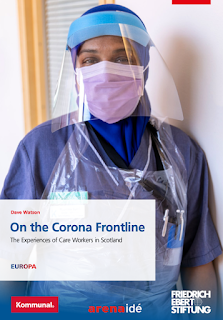- Shortages of personal protective equipment and lack of clear guidelines for when and how it should be used.
- Pre-existing staff shortages worsened further during the crisis, increasing the already unbearable workload of care workers.
- Care workers suffered from increased physical and mental pressure, and there are reports of a dramatic increase in the incidence of burnouts, depressions and substance abuse.
- Although they were forced to work harder and more overtime than ever before, elderly care workers were left with precarious working conditions, many on zero-hour contracts and paid by the hour. When they too fell ill, many countries left them without adequate sick pay.
- Trade unions representing elderly care workers have made a decisive difference, both for the workers and older people.
Employment standards in social care vary considerably between sectors and employers. Care work is undervalued, not least because of discrimination against the mostly female workforce. Attempts have been made to improve pay in the sector with the requirement to pay the Scottish Living Wage, along with new registration and training standards. However, implementation has been challenging, which leaves a range of poor employment practices that have not been addressed.
The trade union response focussed on providing immediate support to members, negotiating with employers and government, and campaigning for service reform. The pandemic has exacerbated the challenges in organising a disparate workforce, and unions have relied heavily on social media. Recruitment has improved, helped by victories over wages, the provision of Personal Protective Equipment (PPE), sick pay and death benefits. Unions have also campaigned for a reformed social care system, structured around a new National Care Service, which is properly funded, ends the marketisation of care, and values the workers who care for society's most vulnerable members.
"The pandemic has proven that deficiencies in social care— which trade unions and their members have warned and protested about for many years—such as precarious working conditions, understaffing and underfunding, have been devastating for the ability to protect the most vulnerable during the coronavirus pandemic: the elderly. It is high time that we listened to them."


